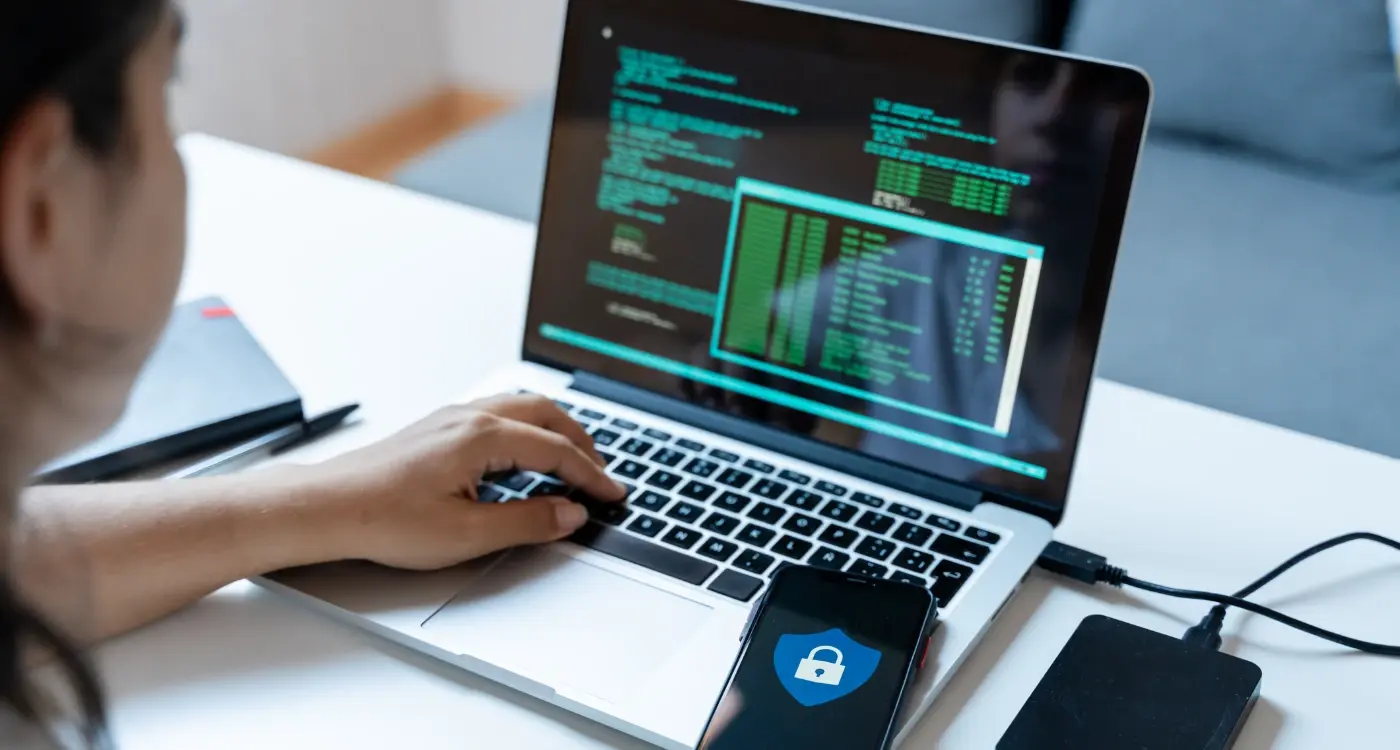Which Platform Security Certifications Matter Most?
You've built an incredible mobile app. The design is spot-on, the functionality works perfectly, and your users love it. Then someone asks about your platform security certifications and you freeze. You know security matters—but which certifications actually make a difference? The world of platform security certifications feels overwhelming, with dozens of acronyms and standards that all seem important but cost serious money to implement.
I've watched countless development teams struggle with this exact problem. They know they need proper security measures, but picking the right platform security certifications can feel like guesswork. Some certifications look impressive but don't add real value for your specific project; others might be absolutely required for your target market but aren't obvious until it's too late.
The wrong security certification can cost you months of development time and thousands in unnecessary compliance work, whilst missing the right one can lock you out of entire markets
Development platform compliance isn't just about ticking boxes—it directly affects where you can distribute your app, which clients will work with you, and whether users trust your platform with their data. Getting security accreditation right from the start saves time, money, and headaches later. This guide cuts through the confusion around platform standards, helping you identify which certifications actually matter for your specific situation. We'll cover everything from international standards that open global markets to regional requirements that might be make-or-break for your launch strategy.
Understanding Security Certifications
Security certifications can feel overwhelming when you're developing mobile apps—and I get it. There are dozens of different standards, each with their own requirements, costs, and benefits. But here's the thing: not all certifications are created equal, and you don't need every single one to build a secure, trustworthy app.
Think of security certifications as official stamps of approval that tell your users (and their companies) that you take data protection seriously. These aren't just fancy certificates to hang on your wall; they're proof that your development processes, infrastructure, and security measures meet specific industry standards.
Types of Security Certifications
The certification landscape breaks down into several key categories, each serving different purposes:
- International standards like ISO 27001 that cover information security management
- Compliance frameworks such as SOC 2 that focus on operational controls
- Payment-specific certifications like PCI DSS for handling card data
- Cloud platform certifications from providers like AWS and Google
- Regional privacy standards including GDPR compliance documentation
Why They Matter for Mobile Apps
Mobile apps handle sensitive data—personal information, location data, payment details, health records. Users are becoming more aware of privacy risks, and businesses are facing stricter regulations. Having the right certifications isn't just about compliance; it's about building trust and opening doors to enterprise clients who won't work with uncertified providers.
The key is understanding which certifications align with your app's specific needs and target market. A fitness app handling health data has different requirements than a simple productivity tool, and knowing these differences will save you time and money whilst keeping your users protected.
ISO Standards and Mobile Development
ISO standards might sound like boring paperwork, but they're actually some of the most respected platform security certifications in mobile development. These international standards give your app credibility that clients and users trust—and for good reason.
The big player here is ISO 27001, which covers information security management systems. When your development platform has this certification, it means they've proven they can protect data properly. This isn't just a tick-box exercise; auditors spend months checking every process, every procedure, every way data moves through their systems.
Key ISO Standards for Mobile Platforms
- ISO 27001 - Information security management
- ISO 27017 - Cloud security controls
- ISO 27018 - Personal data protection in cloud services
- ISO 9001 - Quality management systems
- ISO 22301 - Business continuity management
Here's what makes ISO certifications different from other platform standards—they're not just about having the right security tools. They're about having the right processes and keeping them working year after year. The certification body comes back regularly to check everything's still running smoothly.
Look for development platforms that display their ISO certificate numbers publicly. Real certifications can be verified through the issuing body's website, whilst fake ones cannot.
For mobile app development, ISO 27017 and 27018 are particularly valuable because they focus specifically on cloud environments. Most mobile apps rely heavily on cloud services, so these security accreditations show the platform understands the unique challenges of protecting data that's constantly moving between devices and servers.
The best part about choosing platforms with proper ISO certification? You inherit some of that compliance credibility for your own projects, making it easier to meet your clients' security requirements.
SOC Compliance Requirements
SOC stands for Service Organization Control, and if you're building mobile apps that handle sensitive data, you'll want to understand what this means. SOC compliance isn't just another box to tick—it's about proving your app can be trusted with people's information.
There are three main types of SOC reports you should know about. SOC 1 focuses on financial reporting controls, which matters if your app processes payments or financial data. SOC 2 is the big one for mobile apps; it covers security, availability, processing integrity, confidentiality, and privacy. SOC 3 is basically a public summary of SOC 2 that you can share with customers.
What SOC 2 Actually Covers
The five trust service criteria sound complicated, but they're quite straightforward. Security means your app protects against unauthorised access—think login systems and data encryption. Availability ensures your app works when users need it. Processing integrity checks that your app processes data completely and accurately. Confidentiality protects information that should remain private, whilst privacy covers how you collect and use personal data.
Getting SOC 2 compliant involves working with an independent auditor who'll examine your systems over several months. They'll produce a report that shows whether your controls are working properly. It's not cheap, and it takes time, but it opens doors with enterprise clients who won't touch non-compliant apps.
When You Need SOC Compliance
Here's when SOC compliance becomes important for your app:
- You're targeting enterprise customers or B2B markets
- Your app handles sensitive personal or financial data
- You need to demonstrate security to potential partners
- Clients are specifically asking for SOC 2 reports
- You're competing against other apps that are already compliant
The reality is that SOC compliance has become table stakes for many business apps. Without it, you might find yourself excluded from important deals before discussions even begin.
Payment Security Standards
When you're dealing with money in mobile apps, the rules get serious very quickly. Payment security standards aren't just nice-to-have certifications—they're mandatory shields that protect both you and your users from financial disaster. The Payment Card Industry Data Security Standard (PCI DSS) sits at the top of this pyramid, and if you're processing card payments, compliance isn't optional.
PCI DSS compliance means your app meets strict requirements for handling, storing, and transmitting payment card data. There are four levels of compliance based on transaction volume, but even the smallest merchants need to follow the basic rules. Your development platform needs to support encrypted data transmission, secure storage practices, and regular security testing. Without these platform security certifications, you're essentially building on quicksand.
Beyond Card Payments
Digital wallets and alternative payment methods bring their own development platform compliance requirements. Apple Pay and Google Pay demand specific security implementations; PayPal has its own merchant protection standards; cryptocurrency payments require entirely different security accreditation approaches. Each payment method adds another layer of complexity to your platform standards checklist.
The cost of a data breach averages millions, but PCI compliance violations can shut down your payment processing entirely within days
What many developers miss is that payment security isn't just about the transaction moment—it covers everything from user authentication to data retention policies. Your chosen development platform must support tokenisation, SSL certificates, and regular vulnerability scanning. Skip these foundations and you're not just risking fines; you're gambling with your entire business model. Payment processors will drop non-compliant merchants faster than you can say "chargeback".
Cloud Platform Certifications
When you're building mobile apps that store data in the cloud, you need to know your hosting provider takes security seriously. Cloud platform certifications are basically report cards that show how well these companies protect your information—and your users' information too.
The big cloud providers like Amazon Web Services, Microsoft Azure, and Google Cloud Platform all compete to show they have the best security credentials. They spend millions getting certified because they know businesses won't trust them without proper paperwork to back up their claims.
Key Cloud Security Certifications
Here are the main certifications you should look for when choosing a cloud provider for your mobile app:
- ISO 27001 for information security management systems
- SOC 2 Type II for operational controls and procedures
- FedRAMP for government-grade security standards
- CSA STAR for cloud-specific security assessments
- PCI DSS if you're handling payment card data
What's interesting is that most major cloud providers have all of these certifications—it's become table stakes in the industry. The real difference comes down to how they implement their security controls and how transparent they are about their processes.
Shared Responsibility Model
Here's something that trips up a lot of app developers: cloud certifications only cover what the provider does, not what you do. They secure the infrastructure, but you're still responsible for securing your application code, user access controls, and data encryption settings.
Think of it like renting a flat with good locks and security cameras. The building owner provides the security infrastructure, but you still need to lock your own door and not leave valuables lying around. The same principle applies to cloud security—their certifications protect the foundation, but your app still needs its own security measures on top.
Regional Privacy Regulations
When you're dealing with platform security certifications, you can't ignore the regional privacy regulations that govern how your app handles user data. These aren't just guidelines—they're legal requirements that can make or break your app's success in different markets.
The most talked-about regulation is GDPR in Europe, but there's also CCPA in California, PIPEDA in Canada, and dozens of others worldwide. Each one has its own rules about data collection, storage, and user consent. What's interesting is how these regulations directly impact which platform security certifications you'll need.
Key Regional Requirements
Different regions focus on different aspects of data protection. Here's what matters most:
- GDPR requires explicit consent and data portability rights
- CCPA gives users the right to know what data you collect
- PIPEDA focuses on accountability and transparency
- Brazil's LGPD mirrors GDPR but with stricter penalties
- Singapore's PDPA emphasises data breach notifications
Always check the specific privacy laws for every region where your app will be available—compliance isn't optional and fines can reach millions.
Certification Impact
These regulations don't just create paperwork; they determine which development platform compliance standards you need. If you're targeting European users, your platform needs GDPR-compliant certifications. For California? You'll need CCPA-ready security accreditation.
The tricky part is that many apps serve global audiences, which means you need platform standards that meet the strictest requirements across all your target regions. It's not about picking one—it's about finding certifications that cover your entire user base without limiting your app's functionality or user experience.
Implementation Best Practices
Getting your security certifications sorted is one thing—actually putting them into practice is where things get interesting. I've worked with plenty of teams who've got their certificates framed on the wall but haven't quite figured out how to make them work in the real world of app development.
Start small and build up. Don't try to implement every security standard at once; you'll overwhelm your development team and probably mess something up along the way. Pick your most critical certification first—usually the one your biggest client or market requires—and get that rock solid before moving on.
Documentation Is Your Best Friend
Keep detailed records of everything you do. When auditors come knocking (and they will), you need to show exactly how you've implemented each requirement. Create checklists for your developers, document your processes, and make sure everyone knows where to find the information they need.
Your development team needs proper training too. They can't follow standards they don't understand. Set aside time for regular training sessions—not boring presentations, but practical workshops where they can see how these standards apply to their daily work.
Testing and Monitoring
Regular security testing isn't optional anymore. Set up automated scans, conduct manual penetration tests, and review your code regularly. Most security breaches happen because someone missed something obvious, not because hackers are particularly clever.
Don't forget about ongoing maintenance either. Security standards change, new threats emerge, and your app evolves. What worked six months ago might not be enough today. Schedule regular reviews of your security practices and stay up to date with changes to your chosen certifications.
Choosing the Right Certifications
After working with hundreds of development teams over the years, I can tell you that picking the wrong platform security certifications is one of the most expensive mistakes you can make. It's not just about the money you'll spend getting certified—it's about the opportunities you'll miss and the clients who'll walk away because you don't have what they need.
The trick is matching your certifications to your actual business needs, not just collecting badges. If you're building fintech apps, PCI DSS isn't optional—it's your entry ticket. Working with healthcare data means HIPAA compliance becomes non-negotiable. But here's what catches most teams out: you don't need every certification under the sun.
Start With Your Market
Look at your current clients and the ones you want to attract. Enterprise customers will expect SOC 2 Type II reports; startups might be happy with basic ISO 27001. Cloud-heavy projects need AWS or Azure certifications, whilst government work demands specific compliance requirements. Your platform security certifications should open doors, not drain your budget.
The best certification strategy focuses on depth over breadth—master what your market demands before chasing every standard available
Build Your Certification Roadmap
Start with one core certification that covers your biggest client segment. Get that right, document everything properly, then expand. ISO 27001 makes a solid foundation because other standards often build on its framework. Don't rush the process—proper implementation takes months, not weeks, and cutting corners will show during audits. Remember, these aren't just certificates on the wall; they're promises about how you handle security, and your reputation depends on keeping those promises.
Conclusion
After working with dozens of clients over the years, I can tell you that choosing the right security certifications isn't just about ticking boxes—it's about building trust with your users and protecting your business from real threats. The mobile app world moves fast, and security requirements change constantly, but the foundations we've covered in this guide will serve you well regardless of what comes next.
The truth is, you don't need every certification out there. Start with what matters most to your specific app and users. If you're handling payments, PCI DSS isn't optional. If you're storing health data, HIPAA compliance becomes your priority. Building on the cloud? Those platform-specific certifications will make or break your security posture.
What I've learnt from years of mobile development is that security certifications work best when they're part of your development process from day one, not something you bolt on later. The companies that get this right—the ones that sleep well at night—are those that see certifications as an investment in their users' trust, not just a compliance exercise.
Your certification journey will be unique to your app, your users, and your business model. But whatever path you choose, remember that good security isn't just about meeting today's requirements; it's about building systems that can adapt as those requirements evolve. The certifications you choose today will shape how secure and trustworthy your app remains tomorrow.
Share this
Subscribe To Our Learning Centre
You May Also Like
These Related Guides

How Do Code Reviews Prevent Security Issues in Mobile Apps?

What Role Does DevSecOps Play in Enterprise App Security?



